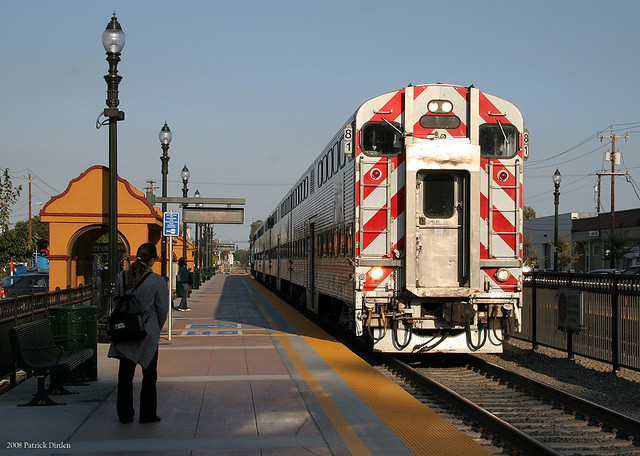Caltrain may have averted a disaster of year-long service cuts. The Caltrain Joint Powers Board voted 5-3 today to approve a budget plan that would retain all of the system's service for the coming fiscal year, granted partnering agencies vote to increase their annual funding contributions.

Board members and advocates praised the plan, which would spare riders from proposed station closures and minimal service limited to peak hours. Still, three board members took the unpopular vote to cut nearly half the trains, deriding the full-service plan as unrealistic and short-sighted.
"This is not a solution, this is a one-time spending plan," said San Mateo County representative Omar Ahmad, who proposed a failed amendment that would've reduced service to 48 trains instead of the full 86. "Deferring preventative maintenance is not kicking the can down the road, it's kicking it into the ditch...We didn't dodge a bullet, we took this one straight in the chest."
The budget plan keeps Caltrain afloat with increased funding contributions from member agencies as well as solutions like a 25-cent fare hike, a $1 increase in daily parking fees, $1.5 million from the maintenance budget, and a requested $3.5 million from the Metropolitan Transportation Commission.
San Francisco representatives Jose Cisneros and Sean Elsbernd voted for Ahmad's amendment, which would've minimized funding contributions from the ailing local transit agencies. SFMTA Executive Director/CEO Nat Ford was not present, opting to attend the launch of SFPark at San Francisco City Hall.
"It's a dream scenario," said Elsbernd. "I can absolutely guarantee you, with the budget we're about to adopt, we'll be back here in January, February, declaring a fiscal emergency."
Caltrain has declared fiscal emergencies for the last three years to fix its chronically ailing budget, but San Mateo representative Adrienne Tissier, the 86-train budget's main proponent, remained optimistic about attaining long-term funding solutions.
"We've got the momentum," said Tissier, who urged the adoption of a two-year plan to find permanent funding such as a voter-approved tax. "There's not a pot of gold at the end of the rainbow - at the end of two years, we could go off a cliff. But the outcry from the public is they're willing to step in and help find long-term solutions."
But there's too much risk in relying on a two-thirds vote to approve a tax measure, said Ahmad. "Getting a [dedicated] revenue source is going to be an extremely heavy lift. If that doesn't happen, is the expectation that Caltrain will take several more months, wring its hands, and dance for rain?"
"I don't think we can do that."




